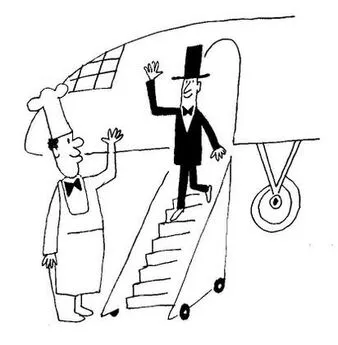ALEXANDER KENT - TO GLORY WE STEER
- Название:TO GLORY WE STEER
- Автор:
- Жанр:
- Издательство:неизвестно
- Год:неизвестен
- ISBN:нет данных
- Рейтинг:
- Избранное:Добавить в избранное
-
Отзывы:
-
Ваша оценка:
ALEXANDER KENT - TO GLORY WE STEER краткое содержание
Portsmouth, 1782. His Britannic Majesty's frigate, Phalarope, is ordered to assist the hard-pressed squadrons in the Caribbean. Aboard is her new commander-Richard Bolitho. To all appearances the Phalarope is everything a young captain could wish for, but beneath the surface she is a deeply unhappy ship-her wardroom torn by petty greed and ambition, her deckhands suspected of cowardice under fire and driven to near-mutiny by senseless ill-treatment.
TO GLORY WE STEER - читать онлайн бесплатно полную версию (весь текст целиком)
Интервал:
Закладка:
So at the age of twenty-two be had been given command of the Sparrow. Again luck had guided his footsteps. The sloop's original commander had died of fever, and her first lieutenant was too junior for the coveted post.
He forced the sympathy to the back of his mind. `How many men were in the mutiny?'
Herrick replied bitterly, `No more than ten. They were trying to release a seaman called Fisher. Captain Po•mfret had had him flogged for insubordination the previous day. He had been complaining about the foul food.'
Bolitho nodded. `That is not uncommon.'
`But Captain Pomfret was not satisfied!' The words burst from his lips in an angry flood. `He had him lashed to the bowsprit, without allowing the surgeon even to treat his back!' He shuddered. `In the Bay of Biscay, with frost on the rigging, and he left him there like so much meat!' He controlled himself with an effort and muttered, `I am sorry, sir. I keep thinking about it.'
Bolitho thought back to Pomfret's neat, matter-of-fact recording in the log. The protesting seamen had rushed the quarterdeck and overpowered the quartermaster and master's mate at pistol point. Only Herrick, a man who obviously agreed with everything the seamen had offered as a grievance, stood between them and a full-scale mutiny. Somehow or other he had cowed them with words. He had ordered them back to the forecastle and they had obeyed because they trusted him. The next day Pomfret's vengeance had broken over the ship in a wave of ferocity. Twenty floggings, and two men hanged. He would not wait until the Phalarope rejoined the fleet, nor would he wait for higher authority to gauge his actions. Herrick's bitterness was well founded, or was it? On the face of it, Pomfret was within his rights. Perhaps Herrick should have shot down the mutineers, or even have foreseen the coming danger. He could have summoned the afterguard, given his life if necessary. Bolitho chilled at the thought of what might have happened if Herrick too had been overcome while he tried to reason with the desperate seamen. The sleeping officers would have been slaughtered, the ship thrown into chaos in enemy waters. It did not bear thinking about.
He persisted, `And then later, when you rejoined the fleet off Brest and came to action with those French ships. Why was the Phalarope not engaged?' Again he saw the wretched emotions, the Uncertainty and anger.
Then it dawned on him. Herrick feared him almost as much as Pomfret. He was captain. He had taken over the ship where Herrick's own misery and shame moved like a ghost between decks. Gently he added, `I take it that the crew were making their own protest?'
Herrick sunk his chin into his neckcloth. `Yes, sir. There was nothing you could put a name to. Sails were badly set. Gun crews slow in responding.' He laughed sharply. `But it was wasted. Quite wasted!' He looked sideways at Bolitho, a brief spark of defiance in his eyes. 'Pomfret usually avoided action if possible!'
Bolitho looked away. You fool, he thought angrily. You have allowed this man to act as a conspirator. You should silence him now, before everyone aboard knows you have accepted an open criticism of Pomfret, a selected captain, without a murmur.
He said slowly, When you have a command of your own, Herrick, you may feel otherwise. The right course of action is not usually the easiest.' He thought of Vibart's hostility and wondered what he had been doing during the mutiny. `I know that every officer must earn his men's loyalty.' He hardened his tone. `But a captain has the loyalty of his' officers as a right, do I make myself clear?'
Herrick looked straight ahead along the street. `Aye, aye, sir!' The guard was restored. His expression wooden and controlled.
Bolitho halted below the church wall and looked up the familiar street which ran beside the churchyard. At the top of the road was the house, its square, uncompromising shape, the familiar grey stonework as enduring as his memory of it.
He stood looking up at it, suddenly apprehensive, like an intruder. He said, `Carry on, Mr. Herrick. Go and see the garrison victualling officer and arrange to have as many fresh eggs and butter sent over to the ship as you can manage.'
Herrick was looking past him towards the big house, his eyes suddenly wistful. `Your home, sir?'
`Yes.' Bolitho began to see Herrick in a different light again. Away from the order and discipline of the frigate and framed by the rain-washed building behind him he looked vaguely defenceless. Bolitho knew from his own methodical study of the ship's papers that Herrick came of a poor, middle-class Kentish family, his father being a clerk. For that reason he would be without influence when he most needed it, and unless he was very fortunate in battle his chances, of advancement were slight.
The sight of his home, the confusion of judgement and ideas angered him, and he said sharply, `After you have dealt with the Army perhaps you would care to join me for a glass of wine before we sail, Mr. Herrick?' He gestured up the road. `My father will welcome you.'
Herrick opened his mouth, an unspoken refusal caught in mid-air. He tugged at his cross-belt and said awkwardly, `Thank you, sir.' He touched his hat as Bolitho turned away towards the house.
Herrick stood quite still, the wind tugging at his boatcloak, until Bolitho reached the gates. Then, chin sunk on chest, he walked slowly towards the castle, his brow creased in a deep frown.
Lieutenant Giles Vibart cursed as his feet skidded on loose stones and a seaman cannoned into his back. The grey morning light showed the extent of the previous night's wind, and the long grass and gorse was flattened and glittering with rain. He pulled his watch from inside his coat and then held up his hand.
`We'll stop here for a bit!' He saw his order passing down the small party of men, and waited until they had squatted beside the crude track before he crossed to the two midshipmen and the gunner.
`We'll give these idlers ten minutes and then move off again.' He looked round as a shaft of frail sunlight touched his cheek. `Then you can take a party further inland, Mr. Farquhar, in case of stragglers.'
Farquhar shrugged and kicked at a pebble. `Suppose nobody comes, sir?'
Vibart snapped, `Just do as you're told!'
Maynard, the other midshipman, readjusted his dirk and looked anxiously towards the resting seamen. `I hope none of 'em try and desert. The captain would be very displeased!'
The gunner gave a lazy grin. `I picked them myself. They're all old hands.' He picked up a piece of grass and pulled it between his uneven teeth. `All pressed men, too. Much better than volunteers for this job!'
Vibart nodded. `Quite right, Mr. Brock. There's nothing better to give an edge to the press. No sailor likes to think others are getting away with it!'
Brock frowned. `An' why should they? It's not right that the fleet is expected to fight bloody battles and keep the country free of the Frogs without help from these lazy, pampered civilians! They make money and live happily with their wives while we do all the hard work!' He spat out the grass. `To hell with 'em, I say!'
Vibart walked away from them and stared down at the rocky beach below the cliff. What did it matter what anybody said? They needed men, and the sooner the better.
He watched the wind hissing through the tangled grass and thought again of the frigate's dash through the night. How unlike Pomfret, he thought. He had always. liked and expected a smart ship. But to him it had been more like a possession than a weapon of war. He larded it in his fine cabin, enjoying his choice wines and well-stocked food store while he, Vibart, ran the ship and did all the things of which he was totally incapable. He moved restlessly on his thick legs as the old fire of resentment and injustice explored his mind like a drug.
Pomfret had been full of promises. A word in, the right quarter and his first lieutenant would receive recognition and promotion when the time was right. All Vibart had to do was take care of the ship and her discipline and he would do the rest.
The captain had no interest in prize money. He was rich beyond Vibart's imagination. He was equally indifferent to glory. He was inefficient as he was cowardly.
Vibart would have been able to manage Pomfret's indulgences but for the captain's real weakness. Like many cowards he was a bully and a sadist. To Vibart harsh discipline was a necessity, but senseless cruelty seemed to be pointless. It weakened or maimed men who would be better employed on duty, it damaged the blind trust of men required to obey without question.
But Vibart was only a lieutenant, and was thirty-three years old. Unlike most of the other officers he had not entered the Navy as a boy, but had come the hard way, having served in merchant vessels the length and breadth of the world. His last three years at sea, prior to entering the Navy as a master's mate, had been aboard an African slaver where he had soon learned that senseless brutality had meant loss of profit at the end of a voyage, with stinking holds as full of useless carcasses as prime, saleable bodies.
He turned angrily and shouted, `Right! We'll move off now!' He watched with brooding eyes as the men picked up their weapons and shambled down the track, while that arrogant young monkey Farquhar strode up the hillside to head. inland. He was typical, Vibart thought viciously. Eighteen years old, pampered and well bred, with a powerful admiral to watch over his progress like a nurse. He glared at the lanky Maynard: `Don't stand there gaping. Go ahead of the patty!'
Well, in spite of their advantages of breeding and influence he, Giles Vibart, had shown them. He allowed the knowledge to stir his insides like rum. He had realised that Pomfret's weakness could not be changed, just as he had soon understood that to oppose him would have finished any hope he might have had left for personal reward. He had managed to overcome his own objections. After all, did it really matter that men were unjustly flogged? They might be flogged later for real cause, so where was the difference?
He had had one ally aboard the unhappy frigate. David Evans, the purser, had kept him fully informed of what was going on between decks. Evans was an evil man even by the standards of his trade. Whenever his ship touched land he would be ashore negotiating for stores and food, using his keen brain and ready tongue to purchase the very worst, the most rancid stock available, and adjusting the price to his own pocket. Vibart, as first lieutenant, was well aware of this trick, but used his knowledge to his own advantage. Evans had useful toadies on the lower deck, reliable men who would inform readily on their messmates for small reward.
Carefully and methodically Vibart had put ruthless pressure on the crew. But floggings were all in the captain's name, never in his own. He was always careful to show off his own seamanship and prowess at navigation whenever Pomfret was not there to see it. Whatever happened when the pressure broke through the men's resistance, Vibart had to be sure that he was ready and blameless at any enquiry.
Evans had told him about the proposed mutiny, and Vibart had known that the moment had at last arrived. When he had suggested to Pomfret that the flogged seaman, Fisher, should be lashed to the bowsprit like some flayed figurehead, he had known that it was the last thing needed to fan alive the flame of anger and mutiny.
The ringleaders had chosen their time well, he conceded. If Okes had been officer-of-the-watch he might have panicked and raised an almighty row which even Pomfret, half sodden with drink in his bunk, would have heard. But Herrick was a different matter. He was a thinker. He would be bound to reason with the men, to prevent an uprising rather than to crush it by brute force.
Читать дальшеИнтервал:
Закладка:








